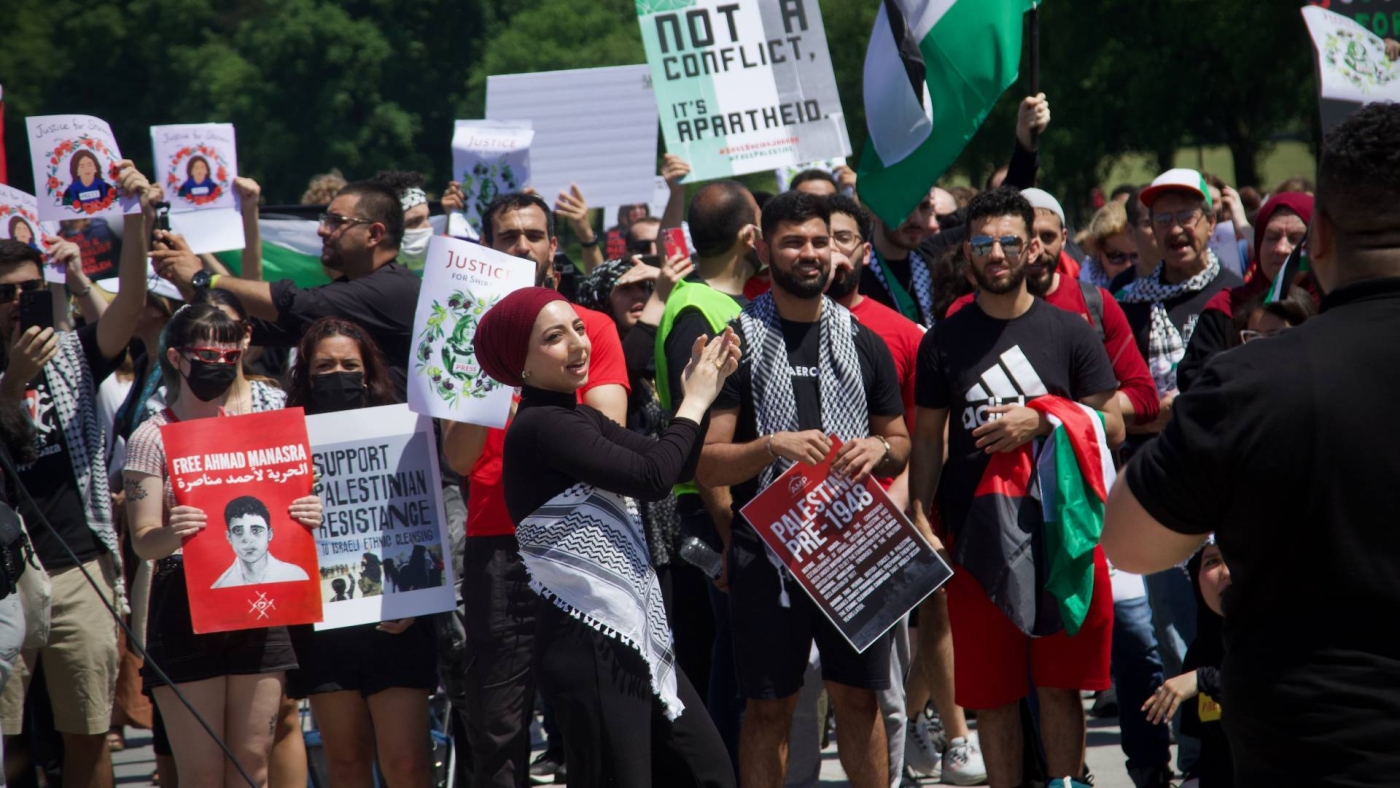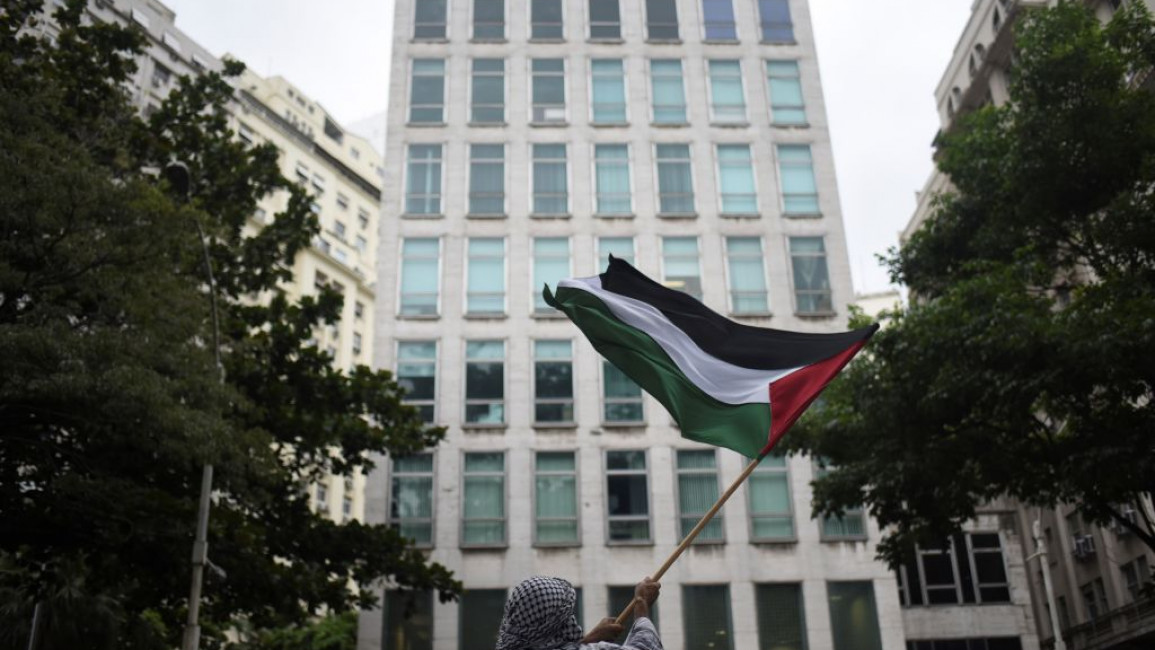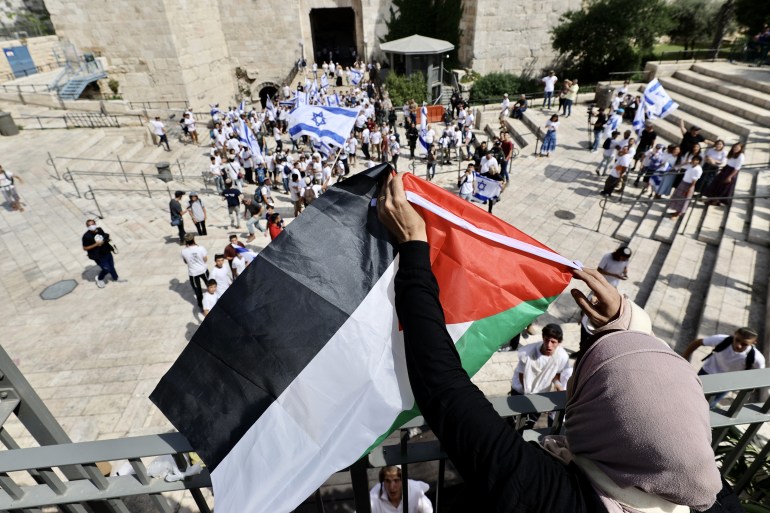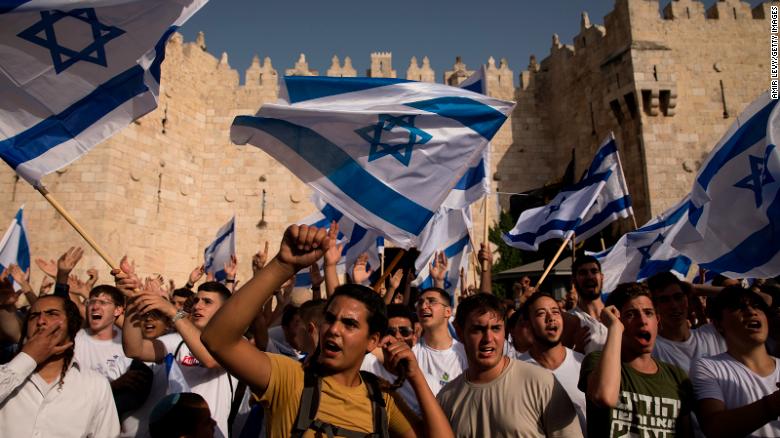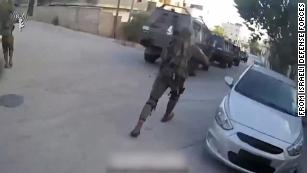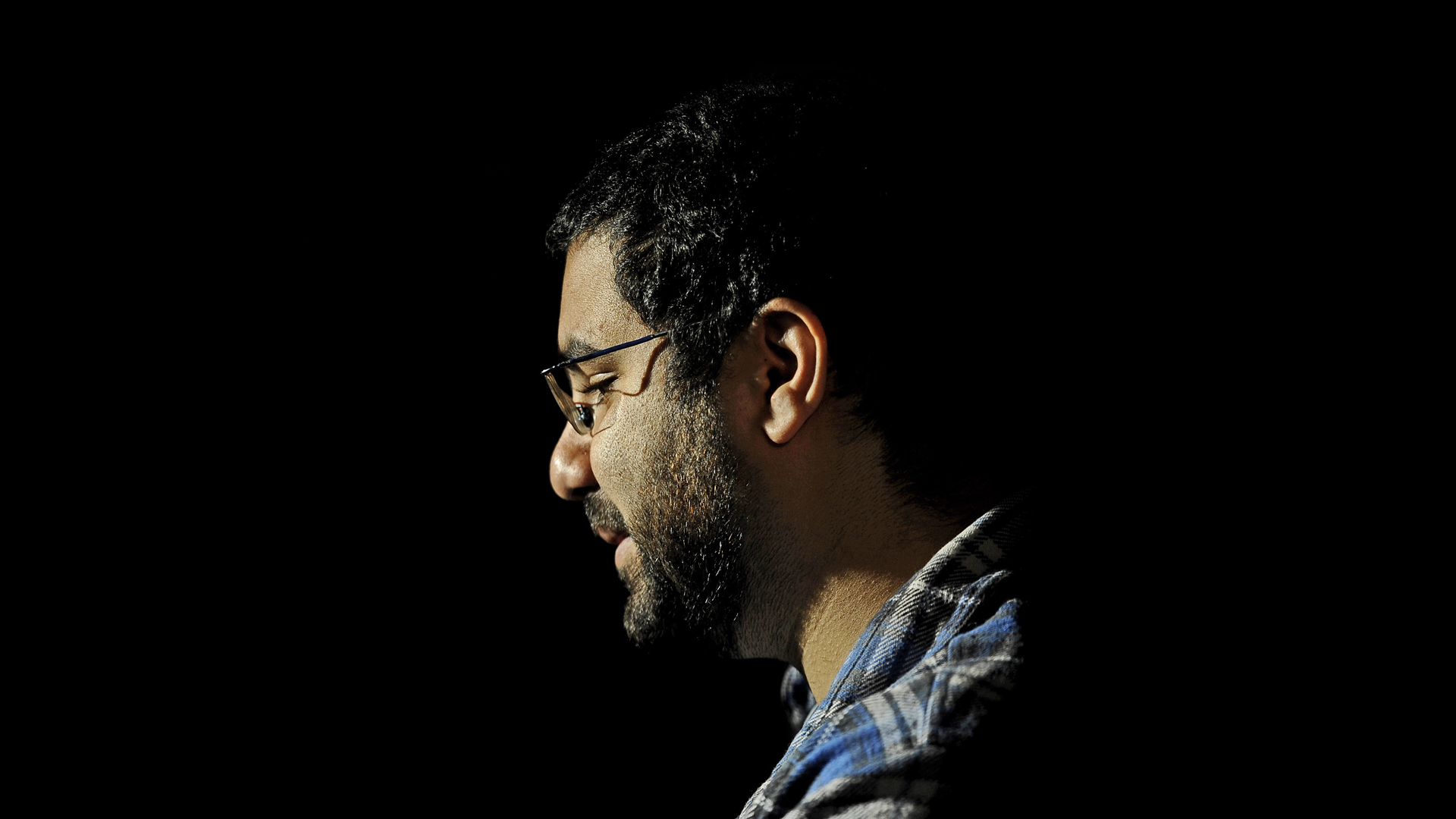
In-depth
Dima Wannous
30 May, 2022
In-depth: In an exclusive interview with Al-Araby Al-Jadeed, Mona Seif, the sister of high-profile Egyptian-British activist Alaa Abdel-Fattah who started a hunger strike on 2 April, says UK authorities need to act now.
His family haven't stopped demanding justice for him since his initial six-year stint in jail from 2013 to 2019. This was followed by a second arrest in 2019, just months after his release. International human rights organisations have also tirelessly tried to highlight his case.
Alaa, a high-profile blogger and activist who mobilised protests against Hosni Mubarak's regime in the January Revolution of 2011, was arrested in 2013 for organising a protest without a permit.
However, the six years he spent behind bars, denied even the most basic rights supposedly afforded by international law, wasn't the end of the story. Shortly after his release, Alaa shared a Facebook post that resulted in his re-arrest and he was thrown back into Tora prison.
"His family haven't stopped demanding justice for him since his initial six-year stint in jail from 2013 to 2019. This was followed by a second arrest in 2019, just months after his release"
UK citizenship: A gamechanger?
Alaa's hunger strike has lasted seven weeks so far, and there are genuine fears over his fragile physical condition after the torture and deprivation he has suffered during the last nine years.
However, Alaa is no longer simply an Egyptian prisoner: after obtaining British citizenship in December 2021, there is a new question - can British nationality save him from this hell?
Moreover, will the British government clearly demand his release as it would for any other British citizen, especially one jailed for having the 'audacity' to express an opinion?
To answer these questions and share more information about Alaa's condition, Al-Araby Al-Jadeed, The New Arab's Arabic-language sister publication, interviewed Mona Seif, his sister and fellow activist, who is in London to raise awareness and press for action on his case.
RELATEDAnalysisHorriya Marzouk
The New Arab: What are the latest developments in Alaa's case?
Mona Seif: Alaa has completed more than 50 days of his hunger strike. Two days ago my mother and his aunt and uncle visited him in the new prison he was transferred to recently (the Wadi El-Natrun prison) which was a response to pressure on Egypt's government by the British embassy in Egypt and interventions by the UK government and MPs.
This very late step comes after two and a half years of him suffering [Tora] prison's horrendous conditions which are completely illegal: the guards were abusive, he was denied sunlight, exercise and books and was kept in isolation. His transferral to Wadi El-Natrun may be a slight improvement. We don't know whether they will allow him books now, for example.
However, the biggest achievement is that he has slept on a mattress for the first time in years. However, Alaa is continuing his hunger strike having made two clear demands: the assignment of an independent investigative judge to examine all the complaints we have submitted since his imprisonment in September 2019, and the torture and assaults he has suffered, in addition to his demand, as a British citizen, for a British consular visit to discuss legal proceedings.
TNA: Has anything changed since he obtained British nationality?
MS: Despite the number of governmental communications undertaken by the British side, nothing has changed. The consulate has been trying to get permission to visit since December with no results. This has pushed me to come to London to meet British officials, while my sister Sanaa has headed to Washington where Alaa's book was recently published.
We are trying to generate more interest [in his case]. All these efforts have contributed to improving the situation even if by a little, and have resulted in Alaa being moved from a maximum-security prison to El-Natrun Prison. However, we still don't know whether he will get some of his rights.
"Alaa's hunger strike has lasted seven weeks so far, and there are genuine fears over his fragile physical condition after the torture and deprivation he has suffered during the last nine years"
TNA: You announced in a family statement that his hunger strike is different this time. Why?
MS: That's right, it's completely different. In the past, Alaa has gone on hunger strikes to improve conditions. Alaa has been living in a maximum-security prison in conditions which don't adhere to any law, like the other prisoners. Furthermore, the level of violence he has suffered and we have also suffered as a family, for which there’s been no intervention from the government, has aggravated the sense of injustice and exhaustion.
When Alaa was sentenced in December (five years for 'spreading false information'), he already had British nationality: he was being sentenced as a British citizen. We have previous experience in this. When my sister Sanaa was in prison and she was issued a British passport, the government immediately allowed a consular visit. Alaa has been waiting for this visit since December, to no avail.
Besides this, Alaa has suffered multiple abuses in the prison. There is a national security officer known as 'Ahmad Fekry' whose real name is Walid Al-Dahshan, who enjoys torturing him and the other prisoners. This reaches the extent of his attending the rare visits of Alaa's only son, Khaled, which forced Alaa to cancel these visits, because it was painful to see his 10-year old son whilst the person responsible for his torture was in the room.
These factors pushed Alaa to a hunger strike to try to end the situation he's in. He wants to end all this absurdity, either through total collapse, or through forcing the authorities to end the injustice inflicted on him for years and hand him over to the British. Alaa wants to sever his relationship with prison by whatever means necessary.
TNA: Have you got detailed information on his condition today seven weeks into the hunger strike?
MS: Physically, Alaa has become gaunt and weak, however his mind is still razor-sharp. He should've had a medical check after moving to the new prison and we should have more details soon. What worries us is that his physical deterioration could be sudden and drastic after fifty days of his hunger strike.
We also lack details on his general health after he's spent two years without sunlight or any form of exercise, which will definitely have affected his health. However, positively, Alaa's mental state has improved since he began hunger striking.
As a family, our relationship with prison is long and bitter. But last September, Alaa talked about death and suicide for the first time ever. Even when my dad was in prison, then on his death bed, Alaa never took such an extreme position, and this frightens us. By hunger striking, Alaa feels like he is resisting, guiding us and dictating the terms of his own battle without surrendering to mental and physical torture.
"The situation in Egypt is horrific - there is no effort or political will in Sisi's regime to find solutions to the prisoner issue, so individual efforts are the only way"
TNA: Was the strike a collective decision?
MS: Usually, these decisions are taken collectively in our family. This time was different. We knew Alaa was considering striking. But we imagined we would discuss it, despite the complications with visiting – since Covid-19, the monthly visits have been restricted to one person and for no more than 20 minutes.
Additionally, there is now a glass barrier between us and him so we have to talk over a telephone. But despite that, we were previously discussing these issues. This time, Alaa took the decision alone, and just informed us after he had started the strike.
RELATEDAnalysisNihal El Aasar
I remember visiting him on the 5th of April and he told me he had started his strike on the first day of Ramadan, which was the 2nd of April. I didn’t ask him to go back on his decision because our role is to support each other's battles, even if we disagree about timing or tactics. However, I did ask him to be patient because I believed the British ambassador's efforts might yield something.
Alaa was more farsighted. He was certain of his decision, having been patient for months while the entirety of the [Egyptian] state was waging war on his body and his mind. And he was right - the soft diplomacy between England and Egypt hasn't succeeded even in getting one book to him.
The British government has the right, according to Egyptian and international law and international agreements which Egypt has signed, to visit a British citizen in prison. The Egyptian side hasn't refused their request, but it is delaying.
Alaa's determination to hunger strike and that we publicise that he has obtained nationality, and all the official procedures we are now undertaking, all this has pushed the case to a new level, and pushed people to help and show their solidarity. All I want is to get Alaa out before his health deteriorates beyond recovery.
TNA: Can you speak about the British government's efforts? What about Foreign Minister Liz Truss, have you managed to get through to her?
MS: The British side is not doing nearly enough. This said, I want to be fair to the consular team in Cairo who have tried their hardest. However, they have limited powers and can't do more without the political will of the British foreign secretary to increase pressure and demand Alaa's immediate release.
The problem is, we are talking about close allies: Britain is Egypt's biggest investor; they have very strong relations. Only two days ago the Egyptian Minister for International Cooperation, Rania Al Mashat, was in Britain to discuss the global climate summit this November. These are two states with shared interests in trade and politics. But I have hope, and my visit to London is part of that.
I hope to see enough of an outcry on this that relevant parties will engage with the urgency of the situation. My last attempt to contact Foreign Minister Liz Truss was via sending a letter signed by 10 British MPs and 17 members of the House of Lords, demanding that she act urgently.
"The British side is not doing nearly enough. This said, I want to be fair to the consular team in Cairo who have tried their hardest. However, they have limited powers and can't do more without the political will of the British foreign secretary"
TNA: Could Alaa's case be used to rescue other prisoners in Egyptian prisons?
MS: The situation in Egypt is horrific - there is no effort or political will in Sisi's regime to find solutions to the prisoner issue, so individual efforts are the only way.
However, Alaa is my brother, so defending human rights is no longer a choice for me - I find myself compelled to work constantly to defend prisoners' rights and to contact their families. My identity is now as a member of the families of prisoners. Alaa and the rest of the prisoners are a mirror, reflecting the appalling state of the law, and of humanity, in Egypt.
Alaa has an active family, a network of supportive human rights groups, a second nationality and a second government to assist him, but none of this has protected him from violations, and didn't even protect his family from being beaten outside Tora prison.
Me and my mum were beaten outside the prison and my sister Sanaa was jailed for over a year simply because we were trying to check on Alaa. So none of this secured him with even minimal rights. So what do prisoners without that support go through?
RELATEDAnalysisHorriya Marzouk
As a family, we have dealt with many prisons, but this was the first time Alaa was tortured. This is an indicator of how they will be treating others who don't have a voice. The independent journalist Mohamed 'Oxygen' was convicted in the same case as Alaa, and since his arrest (2018) he hasn't been allowed one family visit, and has tried to kill himself. And this is not the first suicide attempt in prison. There's also an increasing death rate due to deliberate negligence including medical neglect.
Since Alaa has been in prison, he's seen two prisoners die. The first was Ahmed Sabir, who was in his forties. We filed a report on Alaa's behalf after he told us how Ahmed had suddenly collapsed with exhaustion one day, so the prisoners knocked on the cell door but no one responded. After five hours of continuous knocking, Ahmed died. This is the terrifying state of the general conditions.
"Alaa and the rest of the prisoners are a mirror, reflecting the appalling state of the law, and of humanity, in Egypt"
TNA: Are you being harassed by the public out of fear around your case?
MS: The opposite – people's responses have surprised me. Sisi's regime has decided that my family are its enemy because we express ourselves. Our friends were harassed just for knowing us. However, I have been surprised that despite the fear which prevails in Egypt, we have received huge solidarity.
In the streets, shops, and on public transport, people introduce themselves and express their sympathy - even if they won’t do this publicly. If it wasn't for this support, we wouldn't be able to bear this level of violence.
This is an edited and abridged translation from our Arabic edition. To read the original article click here.
Translated by Rose Chacko.




